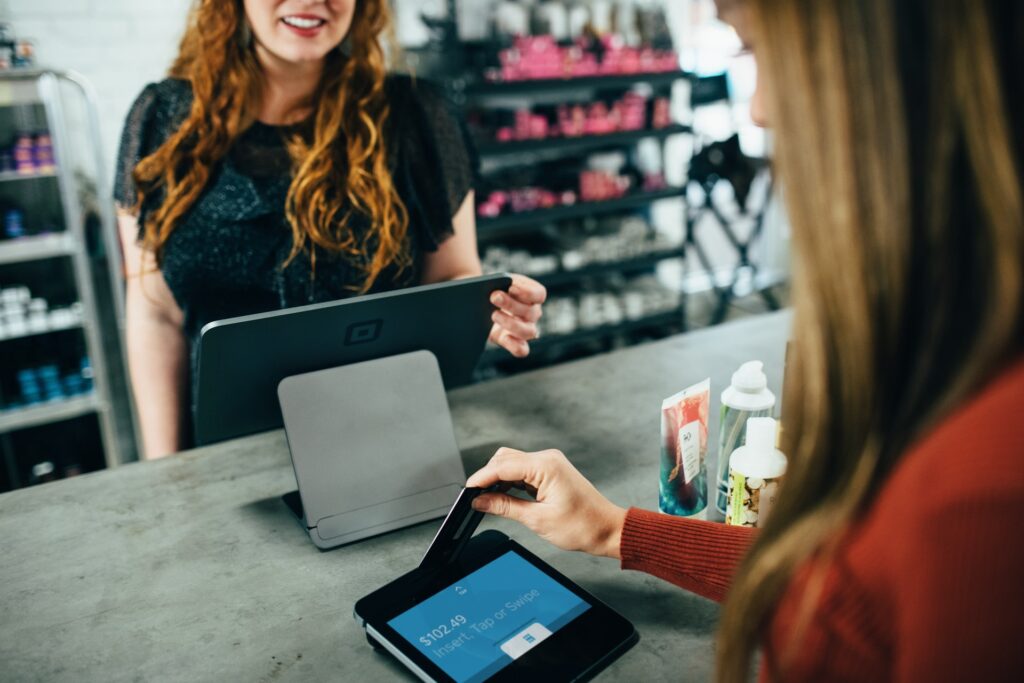For a retail business to succeed, specific objectives need to be met. The first of these is the right product. Whether a retailer sells multiple products from other vendors or their own products, there should be a target market for it.
Although online shopping is becoming increasingly popular, retail shopping continues to thrive as well. For retail businesses to succeed, they need the right marketing strategy and brand awareness campaigns. These can help retail businesses get noticed and invite footfall.
How Can You Start Your Own Retail Business?
If you want to start your own retail business, then this means that you want to sell out of a brick and mortar location. Ideally, you should select a location that near your target consumer base. This will help push footfall to your business. But before you can invite people into your business, you will first need to set it up. Here is how you can start your own retail business in seven simple steps.

1. The Business Idea
The first step to starting your business to find out what you want to sell. Without a product or a service, there is no business. But you can’t just pick a business idea at random. You may also discover that you like a picture but that it’s impractical as a business option for you. This can happen when a product has no existing demand among the people living in a certain area.
So how do you find the right business idea? You’ll have to do your research. Look through what kind of industries interest you. Then, look for niches within those industries. Within these niches, you can find a marketplace that is less saturated and more inviting to new business owners. Say there’s a product that customers want, but no one is supplying that.
By providing your customers with products and services they want, you develop brand loyalty and trust.
2. Legal Structure, Name and Licenses
Your legal structure is important, as it determines factors such as liability and taxes. Some legal structures, like sole proprietorships, provide complete financial and legal liability to business owners. Other forms, such as an LLC, limit the liability of the owner.
When you go to register your business, you should already have chosen the legal structure that you think best suits your business. You’ll also have to apply for business licenses, depending on the kind of retail shop you intend to run. The best way to guarantee that you have all the licenses you need is by visiting your local and national government website. By poring through small business development segments, and checking against the legal obligations, you can ensure that your retail shop complies with necessary rules.
3. Physical Location
For a small business owner in retail, the physical location of the retail store becomes important. This is as retailers need a constant stream of footfall into their stores. By setting up your business in an area where there is demand for your products, you can ensure regular business.
A clothing retail shop for younger women should be located in an area frequented by more youthful woman. A poorly chosen location can lead to the shop needing to close down later on.
4. Suppliers and Vendors
Now that your business is registered and your retail space is ready, it’s time to focus on your products. A mistake many retail business owners make is that they stick to the first supplier they find. This can lead to you spending more money in procuring raw materials than necessary.
You should try to meet new suppliers, see if there are better offers or facilities available to you. By negotiating with various suppliers, you’ll be able to secure the best results for your retail business.
5. Data Analysis
With your product and retail shop location ready, there’s still a crucial step before launch. That step involves collecting data on different aspects of your business and your industry. Data analysis is used to answer additional questions and make business predictions.
You can run a customer analysis to better gauge your ideal target audience. Then you can use the data gained through your customer analysis to better target market your perfect audience. Competition analysis tells you about where your enemies strengths and weaknesses are, and so on.
The main importance of data analysis lies in how it allows business owners to make data driven decisions, which in turn bring in more success.
6. Use Social Media for Brand Awareness
It isn’t enough to start a retail shop, and you also need to let people know about your small business. Otherwise, how can your potential customers know about what you offer and where to find you.
Social media is home to millions of potential customers, many of whom may be interested in your products. Social media marketing campaigns designed to boost brand visibility and create conversations with customers can bring in success.
Don’t forget to make use of the various tools that social media platforms make accessible to business accounts and users. These can include targeted advertising on Facebook, social media analytics, and more. Plus, you can even buy TikTok followers with encryption protection if you should wish to do, and this can be a very important tool in the early days of your campaign as it can help to speed things up considerably when starting out.
7. Consider An Online Store
Many retail shop owners manage an online store simultaneously. This helps them reach out to international customers as well. Even if you want to prioritize your leading retail shop, an online store can still be a good idea.
You get an additional source of revenue and potentially get to expand your customer base.
Conclusion:
Starting a retail store is easy, but growing it can be more challenging. As you develop your products and expand your reach, scaling your business can appear to become easier. A business plan can help you grow your retail business more effectively. It also enables you to protect your business in the long term by acting as a valuable guidebook for success.
Insurance can also help you protect your business. Business insurance provides financial cover for business risks that can negatively affect retail businesses. If you want to learn more about business insurance, then click here.










Comments are closed.